With Universal reissuing remastered versions of Frank Zappa’s enormous catalogue, Gary Steel takes up the challenge of reviewing all of FZ’s genius album creations, one by one, and giving them a unique ‘Zappa Rating’. Today’s selection: the influential debut, Freak Out!
Frank Zappa/The Mothers Of Invention – Freak Out! (Zappa Records/Universal) #1
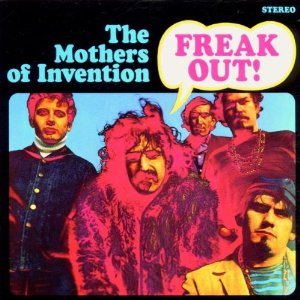 FREAK OUT! ISN’T the best Zappa album, and it lacks the musical articulation of his later work, but it’s one of the key works from the rock’n’roll firmament of 1966, and is still astonishing in a multiplicity of ways.
FREAK OUT! ISN’T the best Zappa album, and it lacks the musical articulation of his later work, but it’s one of the key works from the rock’n’roll firmament of 1966, and is still astonishing in a multiplicity of ways.
The first recorded foray of the Mothers Of Invention – a group originally called the Soul Giants that he had joined then taken over as a vehicle for his own compositional and sociological strategy just a couple of years before – Freak Out! is bursting with half-crazed energy and almost too many ideas to contain themselves on one double vinyl.
Now reduced to one 60-minute CD, Freak Out! was one of the first-ever double vinyl rock releases, trailing Bob Dylan’s Blonde On Blonde by just six weeks – although that is disputed by some, who maintain that Zappa’s came first. Whatever. It’s a boring, train-spotting fact, but also gives an indication of Zappa’s ambition that the music within reinforces with incredible conviction. Produced by Tom Wilson (also producer of the Velvet Underground debut), the July 1966 release of Freak Out! is also the genesis of all pointless disharmony with the Velvet Underground. Word was that Lou Reed was unhappy that the Mothers Of Invention album got the green light before the Velvet Underground debut, causing Reed to dismiss Zappa’s endeavours, and thereafter, generations of callow young fans forming lines with either camp, but never both at the same time. After Zappa’s death, Reed inducted Frank into the Rock’n’Roll Hall of Fame, thereby putting a plaster over this wound once and for all.
![[AllCDCovers]_frank_zappa_freak_out_1987_retail_cd-inside](https://witchdoctor.co.nz/wp-content/uploads/2013/06/AllCDCovers_frank_zappa_freak_out_1987_retail_cd-inside-300x300.jpg) One thing that is undeniably true of Freak Out! is its enormous influence on the rock scene of the time. Zappa had seemingly come out of nowhere, but this outrageous work was like nothing that had ever been heard before, and would have a profound impact on the nascent psychedelic scene in America, and also the work of the Beatles as the group headed away from the live arena to the insular world of Abbey Road studios to make the best albums of their career. It was the experimental nature of Freak Out! that would give the Beatles the courage to work up songs like ‘Day In The Life’, and would even play a part in the formulation of specific scenes in other parts of the world, most notably ‘Krautrock’ in Germany a few years later.
One thing that is undeniably true of Freak Out! is its enormous influence on the rock scene of the time. Zappa had seemingly come out of nowhere, but this outrageous work was like nothing that had ever been heard before, and would have a profound impact on the nascent psychedelic scene in America, and also the work of the Beatles as the group headed away from the live arena to the insular world of Abbey Road studios to make the best albums of their career. It was the experimental nature of Freak Out! that would give the Beatles the courage to work up songs like ‘Day In The Life’, and would even play a part in the formulation of specific scenes in other parts of the world, most notably ‘Krautrock’ in Germany a few years later.
So… what’s so great about Freak Out! in the 21st Century, and does it still stack up? The answer is a qualified ‘yes’. It’s not the near-perfect exposition of Zappa’s brilliance exemplified by We’re Only In It For The Money and Uncle Meat a few years later, and the circumstances of its creation make it somewhat more difficult for the listener to get his (or her) head around; not because the music itself is difficult, but because the recording, production and performances are amateurish by later standards, and the period captured by the album puts it in a very strange time-warp just prior to the explosion of the “freak scene” in LA and the hippie movement universally.
Anyone looking for “weird” may be disappointed with the first half of the album, where none of the songs are longer than three-and-a-half minutes, and many of which hark back to previous eras/styles like doo-wop. Still, peer beneath the cracks and nothing is as it seems.
‘Hungry Freaks, Daddy’ is a great, noisy beginning, with an almost Rolling Stones (‘Satisfaction’) guitar stride and its provocative call for youth to reject the plan that American slave-consumerism and Uncle Sam (service in Vietnam) had for them, complete with kazoo raspberry. ‘I Ain’t Got No Heart’ is a very strange, fully Zappa-formed pop song, which rejects the idea of romantic love (“why should an embrace or two/make me such a part of you?”). It’s a theme that Zappa would interrogate in various ways for years.
 The first hint of something really odd is the third song, ‘Who Are The Brain Police?’ which is a portent of what’s to come on the last two sides of vinyl. It’s still an astonishing piece. Positing the idea that the powers that be might be applying some kind of thought control mechanism on the populace, it’s as scary musically as it is lyrically, with a random splice of some unexplained apocalyptic noise stitched into its fabric like some William Burroughs cut-up.
The first hint of something really odd is the third song, ‘Who Are The Brain Police?’ which is a portent of what’s to come on the last two sides of vinyl. It’s still an astonishing piece. Positing the idea that the powers that be might be applying some kind of thought control mechanism on the populace, it’s as scary musically as it is lyrically, with a random splice of some unexplained apocalyptic noise stitched into its fabric like some William Burroughs cut-up.
After that, ‘Go Cry On Somebody Else’s Shoulder’ sounds very tame, but its greasy doo-wop style will have had rock fans in a spin, even while they were admiring its broadside at pathetic teenybop romantic behaviour. ‘Motherly Love’, on the other hand, was simply a brazen advertisement for groupies, which at the time would have had some socio-political resonance, but is somewhat dimmed by succeeding decades of preposterous rock’n’roll behaviour.
‘How Could I Be Such A Fool’ is a horn-drenched lovelorn ballad that at first seems out of character, and it’s hard to tell whether Zappa is being serious, or seriously taking the piss. Regardless, it’s a memorable song and as with so many Zappa pieces, it’s possible to accept the double-edged sword without getting cut-up about it: anyone who has been damaged by romance can appreciate the embittered lyrics, while also accepting that they’re indulging themselves emotionally and should really get over it. So, in a sense, the theme logically links to famous songs from much later in Zappa’s career, like ‘Broken Hearts Are For Assholes’.
‘Wowie Zowie’ is a short bit of bubblegum fluff that’s impossible not to like, with its happy xylophone and lines like “I don’t even care if you shave your legs.” ‘You Didn’t Try To Call Me’ is another Zappa pop song, of sorts, and like ‘How Could I Be Such A Fool’, I suspect that while there’s a bountiful seam of satire running through this, it may also have come from bitter experience. But ‘Any Way The Wind Blows’, which mines similar themes, may have proved too much for some seeking music that was just a bit more exploratory.
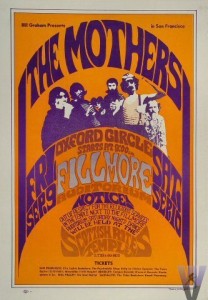 They wouldn’t have to wait long. Both ‘I’m Not Satisfied’ and ‘You’re Probably Wondering Why I’m Here’ are as brilliant as they are nasty. On the former, Zappa (rather than vocalist Ray Collins) sings: “Maybe I’ll just kill myself/I just don’t care no more… Because/I’m not satisfied/Everything I’ve tried/I don’t like the way/Life has been abusing me.” There’s nothing overtly satiric here, but there’s a sense that Zappa is using blues lyric technique to get into the heads of thwarted teens. The latter, however, is classic Zappa, a withering critique of youth culture that taps right into American teen mores circa ’66: “You told your Mom you’re stoked on Tom/And went for a cruise in Freddie’s car/Tommy’s asking/Where you are/You boogied all night in a cheesy bar/Plastic boots and plastic hat/And you think you know where it’s at?”
They wouldn’t have to wait long. Both ‘I’m Not Satisfied’ and ‘You’re Probably Wondering Why I’m Here’ are as brilliant as they are nasty. On the former, Zappa (rather than vocalist Ray Collins) sings: “Maybe I’ll just kill myself/I just don’t care no more… Because/I’m not satisfied/Everything I’ve tried/I don’t like the way/Life has been abusing me.” There’s nothing overtly satiric here, but there’s a sense that Zappa is using blues lyric technique to get into the heads of thwarted teens. The latter, however, is classic Zappa, a withering critique of youth culture that taps right into American teen mores circa ’66: “You told your Mom you’re stoked on Tom/And went for a cruise in Freddie’s car/Tommy’s asking/Where you are/You boogied all night in a cheesy bar/Plastic boots and plastic hat/And you think you know where it’s at?”
But all this is just a foretaste. ‘Trouble Coming Every Day’ is probably the most critically acclaimed of Zappa’s early songs, and in an environment where the scathing social commentary of newly electric Dylan was held in high regard, that’s no surprise. Its five minutes and 49 seconds of searing blues comment unflinchingly on the state of America, from the perspective of the media’s coverage of the Watts riots and “black and white discrimination”.
But even that’s just a foretaste. (Did I say that already?) Freak Out! ends with three of the oddest pieces in all of rock history. ‘Help, I’m A Rock’ grinds along on a faux-Middle Eastern modality, while someone contributes an imaginary language, Zappa makes monster-moron sounds, and… well, it’s impossible to imagine ‘Krautrock’ groups like Can or Faust had this ‘song’ not existed! It must have seemed incredibly ‘out there’ in ’66, and in a sense it still does, with its cultivated insanity and its ongoing narrations bringing in and commenting on aspects of street culture in Los Angeles, and after all this time it’s still somehow challenging and provocative. This segues into ‘It Can’t Happen Here’, an entirely a cappella slice of unmitigated weirdness, in which a demented chorus of (fake) jungle birds, orgasmic women, backwards voices and sundry other sound mechanisms add to lyrics which suggest that underneath the safety of suburbia, there’s an imminent threat.
Finally, all epic, 12 minutes and 16 seconds (an entire side of vinyl) of ‘The Return Of The Son Of Monster Magnet’. Rock music would never be the same after this. Basically a thrilling, scary combo meal of wiggly theremin, insane vocal extemporisations and a battery of percussion, this piece (subtitled ‘Ritual Dance of The Child Killer’) is as far from hippy bliss as imaginable, and it’s a much more accurate take on the madness that would inflict itself on ‘60s culture than anything from the peace ‘n’ love generation.
 Taken in totality, Freak Out! is an often unlovely, lumpy collection of Dadaist rock, but it’s unfailingly innovative, utterly unique, and authentic in a way that more “heart on sleeve” exponents of the later roots rock brigade couldn’t have imagined. Where groups like The Band pretentiously coveted some imaginary authentic American folk-rock spirit, and made boring music, Zappa’s Mothers, with their mixed racial heritage, low-life desert fringe backgrounds and relentless honesty, shook it all up into one incredible multi-coloured, multi-textured cocktail-cum-hand-grenade. That said, fans of ’70s and ’80s Zappa might be shocked at the rather lo-tech presentation, comparatively messy playing, and an absence of the complex signature compositional style he established later on. That said, Freak Out! is still an extraordinarily accomplished debut, and even here, it needs to be noted that Zappa takes an orchestral approach, kitchen sink and all.
Taken in totality, Freak Out! is an often unlovely, lumpy collection of Dadaist rock, but it’s unfailingly innovative, utterly unique, and authentic in a way that more “heart on sleeve” exponents of the later roots rock brigade couldn’t have imagined. Where groups like The Band pretentiously coveted some imaginary authentic American folk-rock spirit, and made boring music, Zappa’s Mothers, with their mixed racial heritage, low-life desert fringe backgrounds and relentless honesty, shook it all up into one incredible multi-coloured, multi-textured cocktail-cum-hand-grenade. That said, fans of ’70s and ’80s Zappa might be shocked at the rather lo-tech presentation, comparatively messy playing, and an absence of the complex signature compositional style he established later on. That said, Freak Out! is still an extraordinarily accomplished debut, and even here, it needs to be noted that Zappa takes an orchestral approach, kitchen sink and all.
Sound quality and presentation: For some reason only known to the Zappa Family Trust, this new version of Freak Out! has used Zappa’s 1987 1630 digital masters, ‘1630’ presumably referring to the type of digital mastering used back in ’87. As this was still early in the digital era, I’m surprised that 2012 digital masters haven’t been created for this reissue, but it seems that Zappa’s masters have been further tampered with by the guy who looks after the FZ vaults, Joe Travers, and presumably, processed using fairly groovy gear. But if that’s the case, it would have been nice to have it stated. In comparing this rendering with the original CD issue, the 2012 issue has noticeably more bass weight and depth, while the attack of the high register notes sounds cleaner and less brittle. It always was an odd recording, sounding like it had been taped in a smelly old studio with oodles of reverb and echo and not quite enough detailed transients. It’s ‘special’ sound was part of what made it what it was, however. Several years ago, the Zappa Family Trust issued a box version of Freak Out! with lots of demo run-throughs, but the first disc was a vinyl stereo master of the album. This version is in some ways a little more impressive sonically than the new one, but it’s much less detailed. The CD cover is only really a minor adjustment to the earlier version, and contains most of the entertaining liner notes of the original LP, including the famous list of 100 people who “contributed materially in many ways to make our music what it is.” GARY STEEL
Zappa Rating
Music = 4/5
Sound = 3/5
Recommendation: This 2012 version of Freak Out! is better than the Ryko version (see notes above), but hardcore Zappa fans need the box set MOFO. In fact, they probably need both.

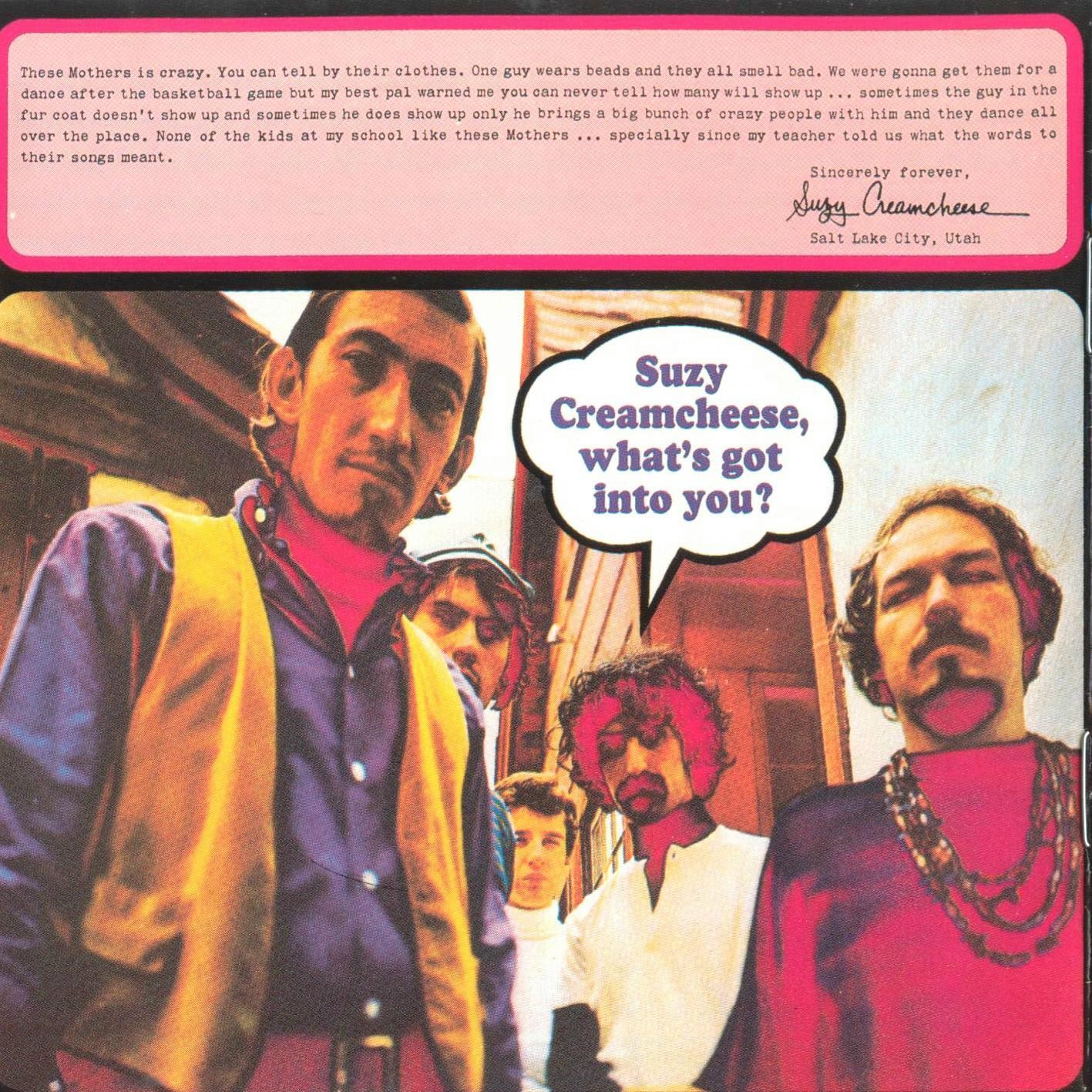


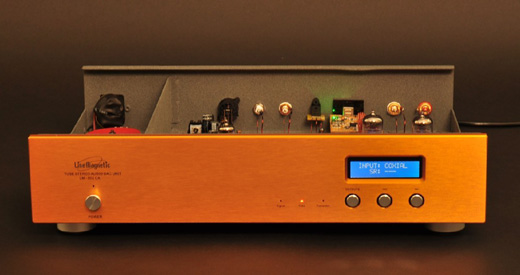
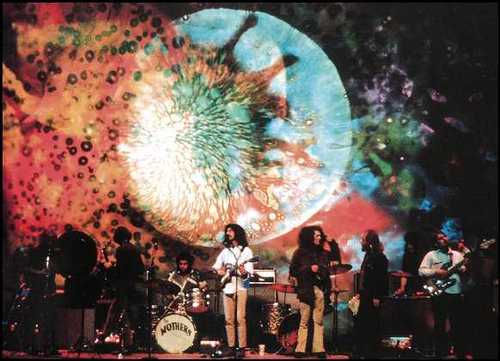


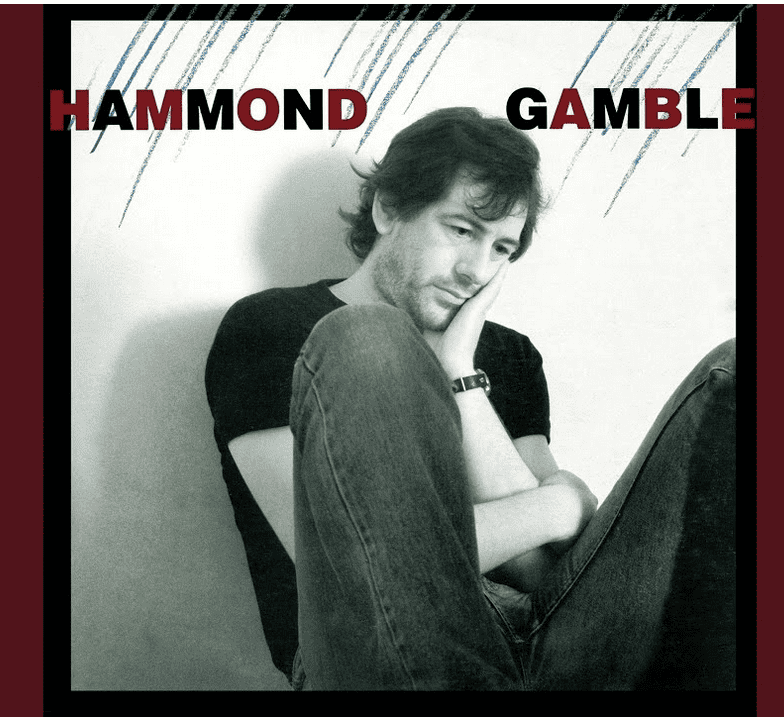



Gary: FYI,’1630′ is a reference to Sony’s 1630 Digital audio processor that allowed 16-bit digital audio to be recorded on to U-matic video tape.
This system was used a fair bit in the early-mid-80s as a mastering source for CDs.
Jim